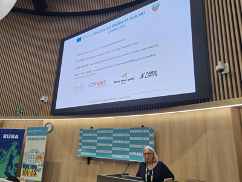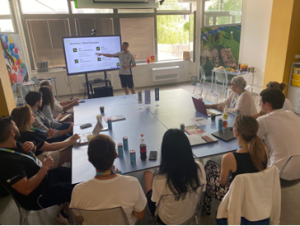Our Blog

At the “EUSA Forum 2024: Synergies in university sport development” held on July 13, 2024 at the University of Debrecen, Hungary, EAS presented the outcomes of the Erasmus+ Sport projects useful for helping higher educational institutions (HEIs) implementing their dual career policies and provisions for university student-athletes. After urging the participants to navigate the friendly-user platform of completed or ongoing EU-funded projects (https://erasmus-plus.ec.europa.eu/projects), the main outcomes of the AMID (Actual situation on DC migrating athletes at HEIs), ESTPORT (the European “Sport Tutorship” model for HEIs), PARA-LIMITS (The guidelines for university career of athletes with disability), and More Than Gold (the Guidelines and Manual to Strengthen Dual Career policies at HEIs) were presented also in light of the Erasmus+Sport project DiscoverU project, which aims to encourage the participation in sport and physical activity by promoting and supporting sport and education of university students.

In targeting organisations that directly or indirectly deal with sport in tertiary education, DiscoverU represents a tremendous opportunity to progress both the European dual career and university sports. The presence of EAS and the other DiscoverU partners at the EUSA Games 2024 highlights the importance of collaboration and involvement of educated youth in sports for the development of future leaders who will contribute to the advancement of a European sport culture.

On July 14, 2024, the hird transnational meeting of the DiscoverU was held at the University of Miskolc, Hungary. This meeting was intended to discuss the progression of the research and the educational phases of the project, as well as the implementation of the communication and dissemination of the project findings.

Further information on the DiscoverU project will be provided at the EAS Conference in Katowice next October 1-3, 2023.
The DiscoverU project is funded by the European Union coordinated by PEGS. Views and opinions expressed are however those of the author(s) only and do not necessarily reflect those of the European Union or the European Education and Culture Executive Agency (EACEA). Neither the European Union nor EACEA can be held responsible for them.

